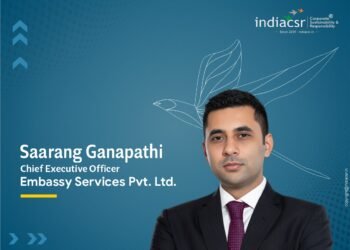By Enakshi Sengupta & Vijay Kapur
With the rise of CSR in India and the rise of compassion to help others, Corporate houses have joined the band wagon of conceptualizing their “favoured child’ or CONGO’s owned by them as a panacea for the problems of development. As Vivian (1994) puts it in a humorous way that these CONGO’s or Corporate Owned NGO’s are treated as ‘magic bullets’, which can be fired at any direction , and very often, if we keep our fingers crossed it may find the right target.
The increasing availability of official funding and the desire to earn ‘goodwill’ has led to an alarming rate in the growth of these corporate owned non-governmental, not for profit organizations. Yet, in most of the cases we have noticed that they are liable to represent both opportunities as well as danger.
The CONGO often without a steering committee at its helm runs the risk of being co-opted into the agenda of others and thus results in their independent social base being eroded. A noted author warns against the inherent corruption in the CONGO’s not only in terms of financial scandals but deviation from their mission of social transformation.
The only path towards avoiding corruption is through a well placed performance monitoring cell, accountability to its stakeholders, avoidance of dictatorial leadership and a well worked out strategic plan with the help of qualified professionals. “This will ensure that a line remains drawn between transparent compromise and blind co-option” (Eade 1993).
Effective performance with proper planning and maintaining transparency becomes the vital pillars of responsible practice. CONGO’s even though funded by the corporate are accountable to each and every stakeholder’s whose lives they touch, their partners, supporters, staff members and to public. Their ‘upward’ accountability lies with their trustees, donors and host government.
Authoritarian rule and “MY organization” syndrome results in a defunct, mismanaged and a chaotic organization. A noted academician and author had pointed out that, “the ultimate objective for non-profit agencies is ‘changed’ human beings”. CONGO’s need to create a standard or a bench mark to measure their progress.
Indicators of quality performance and creation of satisfactory evaluative mechanism are essential to measure the performance of any CONGO. Quantitative targets, standardized indicators, appraisals and monitoring systems need to be developed by qualified professionals having expertise and knowledge in the field.
Although perceived as ‘soft and fluffy’ a CONGO needs staff members who are self critical and knowledgeable. Robert Michels, a Swiss social scientist, observed sadly that staff members with little education are vulnerable to the domination and predation of the autocratic leaders who are the heads of the CONGO’s. Such situation leads to ultimate collapse of the CONGO not before doing adequate harm to its beneficiaries by breaking their trust and psychological contract.
Responsibility shall always remain a vital element that is shared between CONGO’s and the communities which are expected to benefit from it. The question of legitimacy, identity and governance takes a centre stage. CONGO’s will need to adapt to a changing world, redefine their roles and recognize what is happening around them. It is only then they will be able to create a real time quantifiable impact to society and its stakeholders.






















